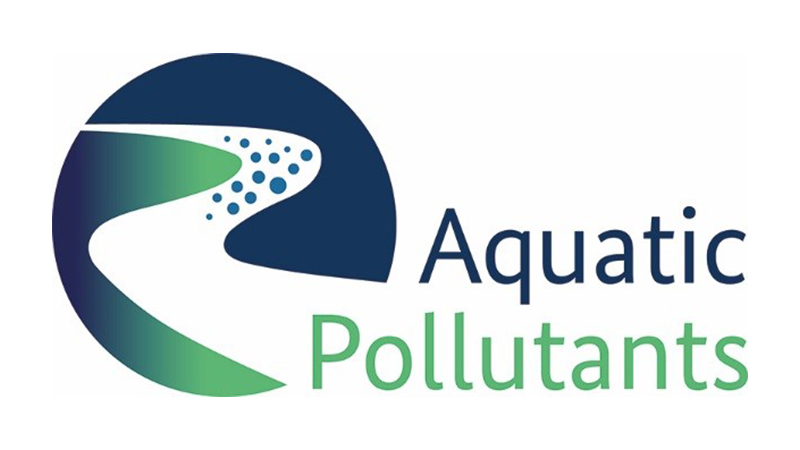The three Joint Programming Initiatives (JPIs) on Water, Oceans and Antimicrobial Resistance (AMR) are pleased to announce a joint transnational call for research and innovation projects on risks posed to human health and the environment by pollutants and pathogens present in the water resources.

The call AquaticPollutants will support research and innovation projects that establish integrated and cross-sectoral approaches for risk-management combining the research areas of contaminants of emerging concerns (CECs), pathogens and antimicrobial resistance. The whole water cycle, from the source through the river basins and eventually to the estuaries and oceans, has to be considered. The projected call budget is approximately 25 million Euro (co-funded by the European Commission).
There are still major risks associated with the occurrence of emerging contaminants, pathogens and antimicrobial resistant bacteria in our water bodies and oceans. To face these challenges in a comprehensive way and to develop multidisciplinary and practical solutions for the provision of safe drinking water and healthy aquatic environments, this Joint Transnational Call (JTC) aims to make the research communities in the freshwater, marine and the health sectors work together and create synergies for joint approaches.
Call themes
- Measuring – Environmental behaviour of contaminants of emerging concern (CECs), pathogens and antimicrobial resistant bacteria in aquatic ecosystems
- Evaluating – Risk assessment and management of CECs, pathogens and antimicrobial resistant bacteria from aquatic ecosystems (inland and marine) to human health and environment
- Taking Actions – Strategies to reduce CECs, pathogens and antimicrobial resistant bacteria in aquatic ecosystems (inland and marine)
Information & application
Timeline
Due to the high numbers of pre-proposals submitted and summer holiday season across Europe, the evaluation phase of the pre-proposals had to be prolonged. The guidelines for full-proposal submission and new timeline are now available (see below). The Submission platform is also now open.
- Call opening: 17 February 2020
- Deadline pre-proposals: 18 May 2020, 17.00 CET
- Invitation to submit full proposals: 19 October 2020
- Deadline full proposals: 23 November 2020
- Funding decision announced: March 2021
- Start of projects: 2021
- Project ends: 2024
Application
This call is closed.
- AquaticPollutants call – Call text – updated 18 March 2020 (pdf). All specific information on the call AquaticPollutants.
- AquaticPollutants call – National regulations – updated 20 April 2020 (pdf)
- AquaticPollutants call – National contact points
Support for applicants
- Information Webinar for Applicants : 12 March 2020, 13 – 14.30, online. Click here for the webinar presentation: AquaticPollutants webinar presenation (pdf)
- AquaticPollutants call – Guidelines for pre-proposal submission (pdf)
- AquaticPollutants call – Guidelines for full-proposal submission (pdf)
- AquaticPollutants F&Q (pdf)
Call Secretariat
The AquaticPollutants Call Secretariat is hosted by Project Management Jülich.
Contact:
Stefanie Pietsch, s.pietsch@fz-juelich.de
Sabine Sorge, s.sorge@fz-juelich.de
Funders
Belgium
Belgian Science Policy Office (BELSPO)
Fonds de la Recherche Scientifique (FNRS)
The Research Foundation – Flanders (FWO)
Brazil
Conselho Nacional das Fundações Estaduais de Amparo à Pesquisa (CONFAP)
Cyprus
Research and Innovation Foundation (RIF)
Czech Republic
Technologická Agentura České Republiky (TAČR)
Denmark
Innovation Fund Denmark (IFD)
Estonia
Eesti Teadusagentuur (ETAg)
Finland
Academy of Finland (AKA)
France
French National Research Agency (ANR)
Germany
The Federal Ministry of Education and Research (BMBF)
Greece
General Secretariat for Research & Technology (GSRT)
Ireland
Environmental Protection Agency (EPA)
Israel
Ministry of Health – Chief Scientist Office (CSO-MOH)
Italy
Agenzia Regionale per la Protezione dell’Ambiente Regione Siciliana (A.R.P.A. Sicilia)
Ministero dell’Università e della Ricerca (MUR)
Latvia
Ministry of Education and Science (IZM)
Moldova
National Agency for Research and Development (NARD)
Norway
The Research Council of Norway (RCN)
Poland
National Centre for Research and Development (NCBR)
Portugal
Foundation for Science and Technology (FCT, I.P.)
Romania
Executive Agency for Higher Education, Research, Development and Innovation Funding (UEFISCDI)
Scotland
Scottish Enterprise (SCOTENT)
South Africa
Water Research Commission (WRC)
Spain
Agencia Estatal de Investigación (AEI)
Instituto de Salud Carlos III (ISCIII)
Sweden
Swedish Research Council for Environment, Agricultural Sciences and Spatial Planning (FORMAS)
Swedish International Development Cooperation Agency (Sida)
Swedish Research Council (SRC)
Taiwan
Ministry of Science and Technology (MoST)
Tunesia
Ministry of Higher Education and Scientific Research (MHESR)
Turkey
The Scientific and Technological Research Council of Turkey (TUBITAK)
Supported projects
Eighteen projects including 103 partners were funded within the AquaticPollutants Joint Transnational Call. The total funding amount was approx. 20 M€. Click on the project titles in the list below to read more on each project.
